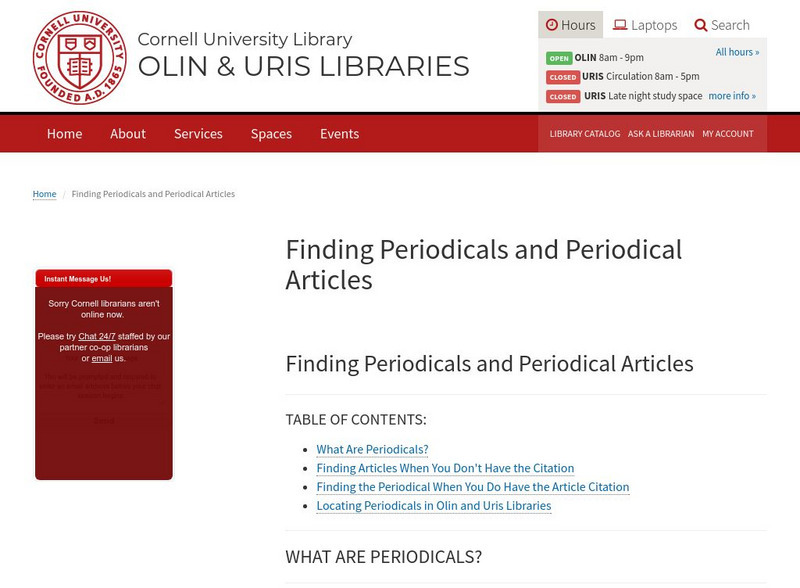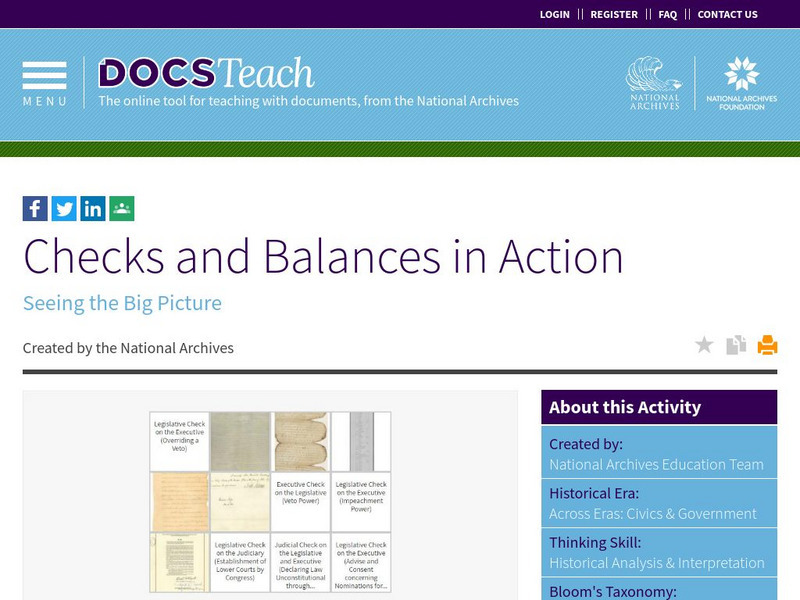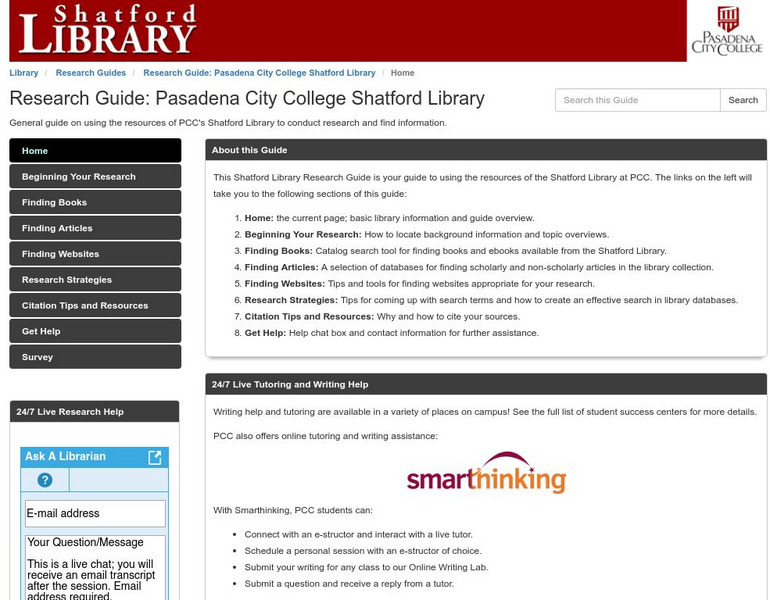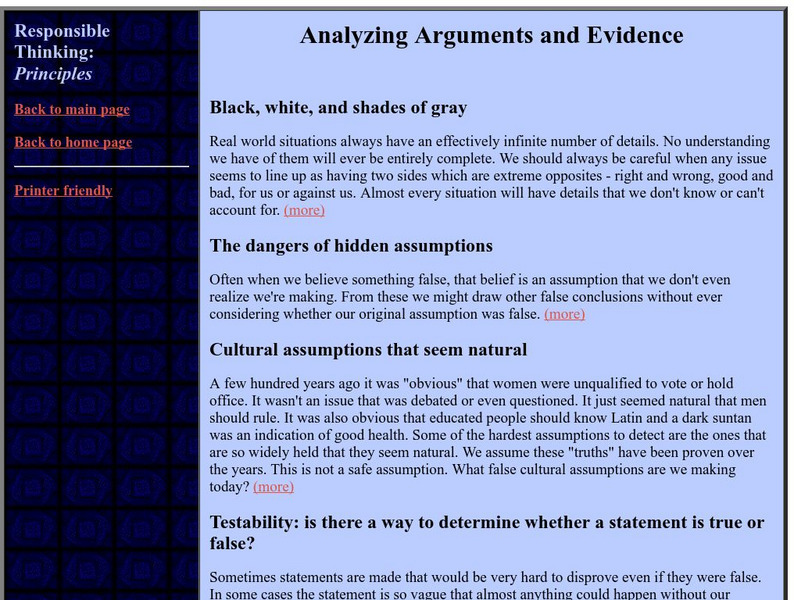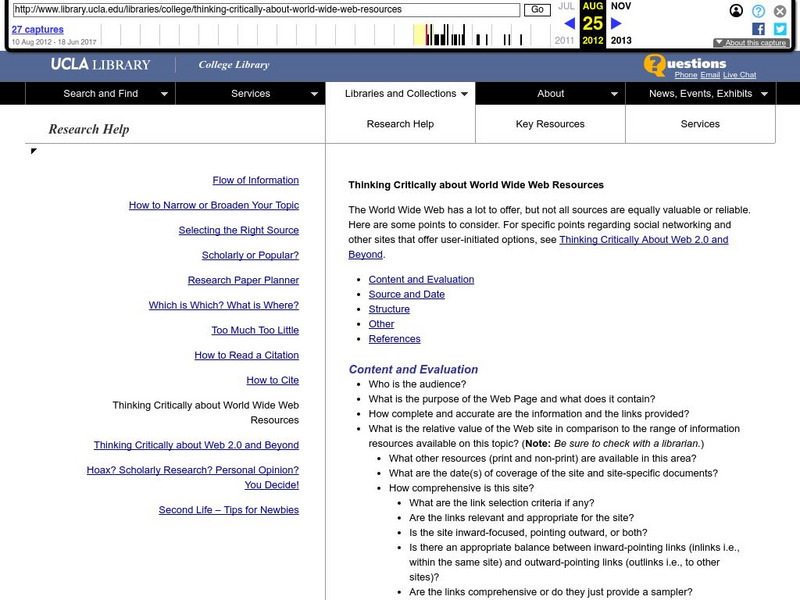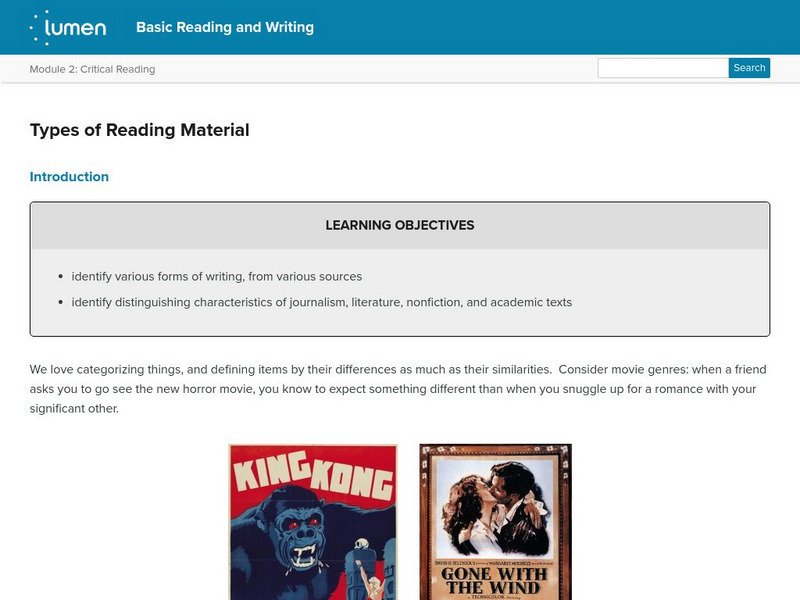US Government Publishing Office
Ben's Guide to u.s. Government: Learning Adventures: Branches of Government
Beginning page of a Learning Adventure examines what parts of the Constitution give the branches of the Federal Government their specific powers. Those three parts are Article I, Article II, and Article III.
Johns Hopkins University
Johns Hopkins University Sheridan Libraries: Information and Its Counterfeits
Distinguishing information from propaganda, biased reporting and misinformation is an important skill. This short article defines each of these, and provides examples of each.
Cornell University
Cornell University: Finding Periodicals and Periodical Articles
This resource offers a good look at periodicals as a source of information, and offers help for finding articles in a variety of situations.
US Government Publishing Office
Ben's Guide to u.s. Government: Branch O Mania
Learning game for ages 4 and above the U.S. Government in which players use the information they have gained from Learning Adventures and help Ben Franklin catch the icons that are unique to each branch of government.
US National Archives
Docsteach: The Legislative Process: Congress at Work
Students will analyze historical records of the House and Senate to understand the sequence of steps in the legislative process. The students will work collaboratively to study documents and identify the step in the process that each...
US National Archives
Docs Teach: Checks and Balances in Action
In this activity, students will analyze documents that span the course of American history to see examples of 'checks and balances' between the legislative, executive, and judicial branches in action. Students will then match the...
US National Archives
Docs Teach: Separation of Powers or Shared Powers
In this activity, students will analyze documents that illustrate the relationship between the legislative, executive and judicial branches. Using the scale in Weighing the Evidence, students will decide whether the United States...
Pasadena City College
Pasadena City College: Shatford Library: Finding Articles
A step-by-step tutorial walks you through various ways of locating magazine and other periodical articles.
Other
The International Press Institute
The International Press Institute describes itself as "a global network of journalists, editors and media executives, dedicated to freedom of the press and improving the standards and practises of journalism." To that end, this site...
Other
Compare Two Different Mediums
Student can demonstrate their mastery of this standards by using different assessments, short answer, or graphic organizer.
US Senate
Us Senate Select Committee on Intelligence
This Senate committee oversees the intelligence activities and programs of the United States Government.
Sophia Learning
Sophia: Research Sources: Books
A nine-slide presentation discussing the pros and cons of books being used during the process of gathering research.
Discovery Education
Discovery Education: Your Daily Learning Platform
An index to the Discovery Channel. Find resources for teachers, students, and even parents, from science experiments to math help, to virtual field trips.
Other
Society of Professional Journalists: Freedom of Info.
This resource is a great tool for journalists and non-journalists to obtain information from federal and local government sources. Access to this information can make or break a news story.
Other
Responsible Thinking: Analyzing Arguments and Evidence
Contains many points to consider when analyzing someone's arguments and evidence, such as the hidden assumptions, cultural assumptions, and testability. Each is explained in a short paragraph with a link to additional discussions on...
The Write Place
Literacy Education Online: Assessing the Credibility of Online Sources
This site from the St. Cloud State University provides information on online sources. This article explains how to assess the value of online sources based on authorship, publisher, date of publication, depth of material, and...
University of California
Ucla College Library: Thinking Critically About World Wide Web Resources
This site teaches readers how to evaluate the content and quality of web resources, offering questions and checklists to consider.
Other
Fair: Retractions of Reporting Are Quite Selective
Interesting essay on the use of unnamed or anonymous sources, accuracy of reports, and retractions of innaccurate reports by major news outlets. Eye opener.
Other
Monash University Library: Evaluating What You Find
This site explains how to evaluate the information you find in your research and provides practice exercises. It includes three sections: Evaluating the reliability of sources, Academic research on the internet, and Evaluating academic...
Lumen Learning
Lumen: Critical Reading: Types of Reading Material
This lesson focuses on the types of reading material and their distinguishing features. It also included two videos including the key features from a newspaper story video and a video that defines scholarly articles.
Other
Ire: Investigative Reporters and Editors
This non-profit group was created in 1975 as a networking tool for the exchange of ideas and attitudes concerning the quality of investigative reporting for the media. Site is newsletter-style with up-to-date information.
Lumen Learning
Lumen: Evaluating Sources: Introduction to Types of Sources
This is an introduction to evaluating sources and the types of sources available.
Lumen Learning
Lumen: Evaluating Sources: Scholarly vs. Non Scholarly Sources
This lesson focuses on types of sources including scholarly vs. non-scholarly sources and print, online, and multimedia.
Lumen Learning
Lumen: Evaluating Sources: Introduction to Multimedia Sources
An introduction to methods of evaluating multimedia sources.




